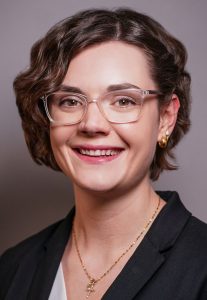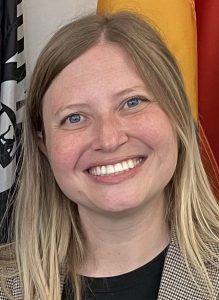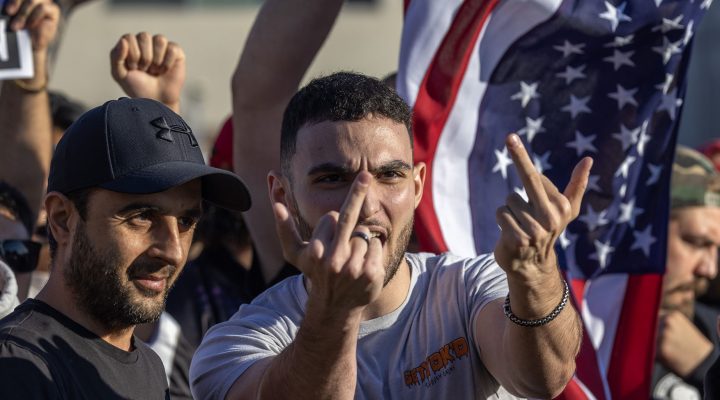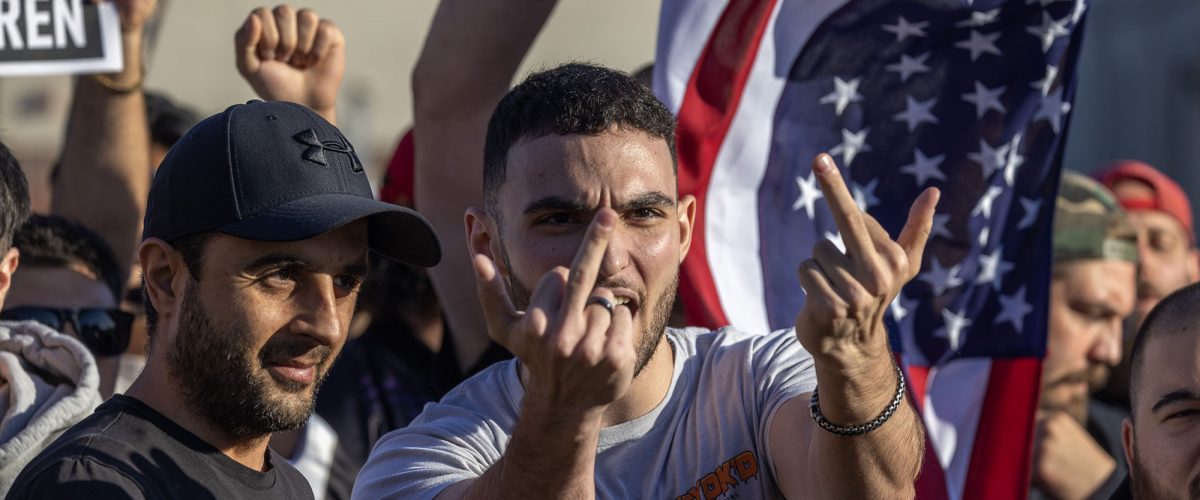Against the backdrop of rising anti-LGBTQ violence, Interfaith Alliance and its partners will provide training for faith leaders and congregations to serve as buffers between hate groups and those attending Pride month events in June.
“While this year it is still important for religious folks to hold pride services in our congregations, it is not enough,” Alliance President Paul Raushenbush said. “We need to go out from the sanctuary and show up to use our presence to help ensure the well-being of our LGBTQ siblings by neutralizing hateful attacks on LGBTQ people and pride events.”
The initiative includes a May 22 “De-Escalation Training” webinar to push back against the harassment and threats nationwide Pride celebrations increasingly attract. The free training will impart techniques for peacefully reducing the angry rhetoric and actions anti-LGBTQ advocates typically express during their demonstrations.
The Southern Poverty Law Center, Pride Peacebuilders, the Religious Action Center for Reform Judaism and Keshet, a group devoted to equality for LGBTQ Jewish people, are partners with the Alliance in the project.

Maureen O’Leary
“With a contentious election season and a rise in hate and extremist incidents, we felt we needed to have folks on ground this year to face the clear and frightening reality that Pride events are going to be targeted by anti-LGBTQ activists,” said Maureen O’Leary, organizing director at Interfaith Alliance.
Raushenbush devoted a portion of a recent “State of Belief” podcast to the goals of the training and how it fits into his organization’s annual Faith for Pride initiative.
The focus in 2023 was on faith-inspired organizing in opposition to anti-gay legislation being introduced and passed across the nation, he said. “Last year we ended up having 120 national and local organizations sign on to Faith for Pride all across the country. This year, we want to get even more people involved in this very proactive, tangible thing you can do.”
During the podcast, Pride Peacebuilders co-founder Frankie Leigh said the training his group will bring to the table is based on hard-earned experience from multiple encounters with anti-LGBTQ extremists.
“Sometimes, there are busloads of protesters who are from a faith group or faith community, and they’re showing up with really hateful signs and hateful rhetoric and creating an unsafe environment of pride for a lot of the attendees,” Leigh explained.
LGBTQ supporters must learn to avoid direct confrontation or argument in such situations and instead seek to provide a calm counterbalance to protesters’ hostility. But being that kind of presence often feels counterintuitive, Leigh said. “If somebody is armed or behaving really aggressively, our instinct is to withdraw or to react with fear to that, and that’s what they’re looking for — intimidation. So, I have found proactively approaching them and saying, ‘Hey, welcome to Pride. There’s free food over there. I can answer any questions you have.’ Being warm and friendly in a proactive way to somebody who appears aggressive or agitated can really de-escalate things before they even start.”

Frankie Leigh
Listening is an another effective — and counterintuitive — response to anti-LGBTQ activists, she said. “All the times I have successfully de-escalated someone who is angry or agitated or yelling at people, I was willing to listen to them. And sometimes that means listening to things I find really yucky.”
By being present and kind, volunteers often learn what it is protesters are actually disturbed about, Leigh added. “A lot of time it’s just fear, but it could be that their basic needs aren’t met. Pride festivals are very hot, if you haven’t noticed. And we all get kind of agitated when we’re really overheated. So, just noticing these simple human needs and then trying to be an ally in helping them meet those needs will de-escalate anger. But the short answer is you listen to things you probably don’t want to listen to, but it helps to bring them down.”
O’Leary injected that SPLC’s partnership role will be to train volunteers how to effectively document and report the numbers and types of encounters that occur at their events.
“That’s going to be really helpful to researchers in informing best practices moving forward,” she said. “This will also help better equip faith and LGBTQ organizations to keep their communities safe, to act as forces of de-escalation and of peace building during the month of Pride and beyond.”
O’Leary said the training is open not only to religious leaders and communities but also to atheists, humanists and anyone else interested in being an ally of LGBTQ people. And those who cannot attend the live webinar will have an opportunity to learn through online learning modules if they are registered.
But she also cautioned against taking a circle-the-wagons mindset during Pride month. “As a queer person and as a person of faith, I show up as my whole self to Pride. No matter how you’re coming to Pride, don’t let them steal your joy. Pride is one of those opportunities to celebrate at a time where there is a lot of tension.”


